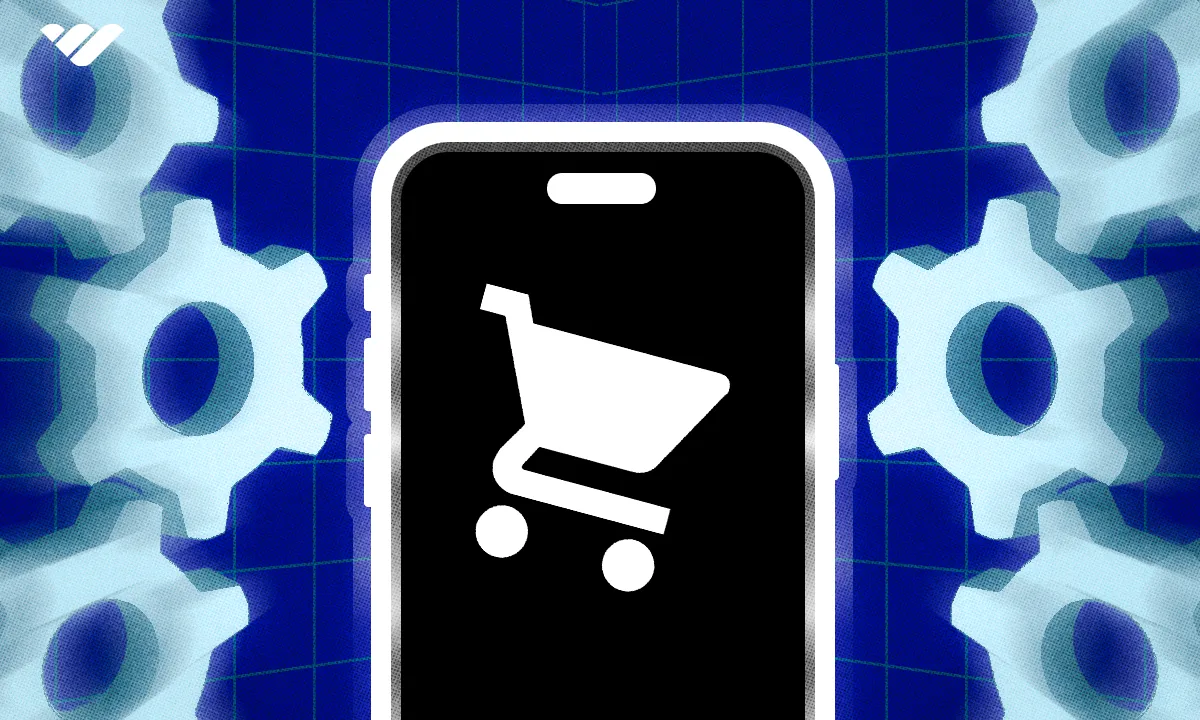Discover how ecommerce automation tools can streamline operations, enhance efficiency, and improve customer experience for your online business. Explore the best tools, their key benefits, and how they can help you save time and boost profitability.
Key takeaways
- Ecommerce automation tools handle repetitive tasks like order processing and inventory management, freeing teams for strategic work.
- Automation reduces costly human errors such as overselling products, mismanaging orders, and inconsistent customer communication.
- Different automation tools serve distinct needs—from multi-app workflows to email marketing to inventory and subscription management.
Having an ecommerce business involves dealing with so many operations, from acquiring and retaining customers to fulfilling orders to any number of other activities that can be time-consuming for a small group of people. So, how can this be solved? Through automation tools.
Ecommerce automation tools benefit brands by optimizing workflow and increasing company output. In this guide, you'll learn everything about automation tools, their uses, benefits, and some of the best automation tools for ecommerce in 2024. Sounds interesting? Then keep reading and learn more.
What is an ecommerce automation tool?
An automation tool is a software designed to streamline and automate repetitive tasks and processes involved in running an online business. These programs help businesses save time, reduce possible errors, and enhance operational efficiency by taking over routine activities like order processing, inventory management, customer service, shipping, and more.
For example, an ecommerce automation tool might send automated emails to customers who abandon their shopping carts, manage stock levels by automatically reordering inventory, or route customer service inquiries to the appropriate team. It all depends on the type of tool, of course, but these apps allow businesses to focus on growth and strategic thinking instead of time-consuming tasks.
What are the benefits of an ecommerce automation tool for your business?
Ecommerce automation tools can offer several benefits to your business, like saving time, reducing errors, and enchanting the overall efficiency of your business. Here are some of the main benefits of automation tools for your business:
Increased efficiency
Automation software takes over time-consuming, repetitive tasks, such as updating inventory information, processing orders, and managing customer emails. This allows you and your team to focus on more strategic activities, like entering new sales channels or improving customer experience.
Mistake reduction
Managing an online business often means taking care of many processes, and that can lead to mistakes like overselling products or mismanaging orders. With a good automation tool, human error can be minimized with specific software that could, for example, sync inventory, generate accurate invoices, and handle order fulfillment seamlessly across multiple platforms without the risks of mistakes.
Improved customer experience
Automated tools can focus on many aspects of customer experience, like dealing with support and post-purchase communication, allowing you to offer faster and more personalized responses, for example. Some tools allow for timely follow-ups such as cart-abandonment emails or post-purchase thank-you emails, improving customer satisfaction, or increasing retention.
Cost savings and scalability
As your ecommerce business grows, the number of processes you have to deal with increases as well. Automation tools reduce the need for additional staff to handle these new processes, ensuring that you can handle more orders, customers, and products without hiring additional staff or increasing workloads. This minimizes operating costs and improves overall profitability.
The best ecommerce automation tools
Here are the best ecommerce automation tools you can find for your business:
1. Zapier
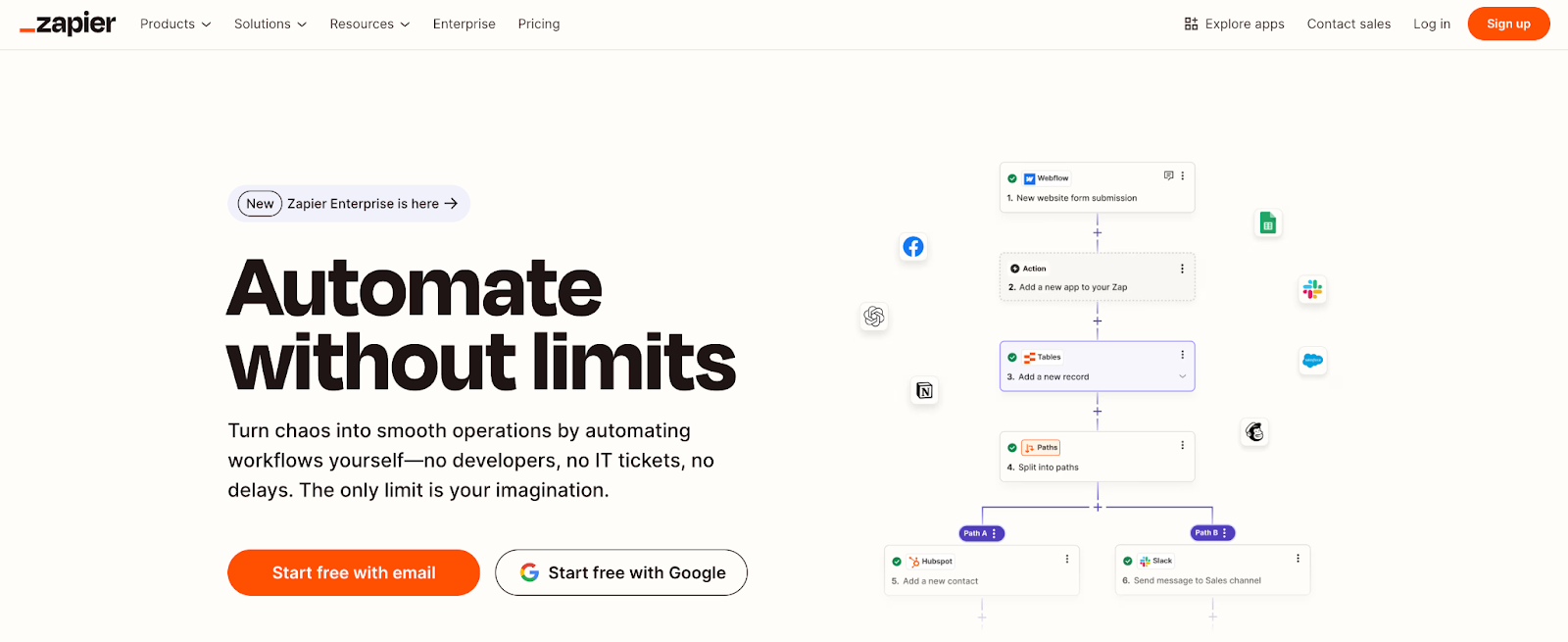
Zapier is an app integration tool that connects over 7,000 apps, allowing users to create workflows called "Zaps" without coding skills. These Zaps automate tasks by triggering actions between different applications. For example, when a new order is received in a sales platform you’re using, Zapier can automatically create a customer record in your CRM and send a thank-you email through an email marketing app of your choice.
Best for: Businesses looking to link different software platforms without coding or technical expertise.
Key features:
- Integration with over 7,000 apps, including Shopify, WooCommerce, and Gmail.
- Easy-to-create workflows ("Zaps") between apps.
- Task automation for various processes, including order management and customer follow-up.
2. Mailchimp
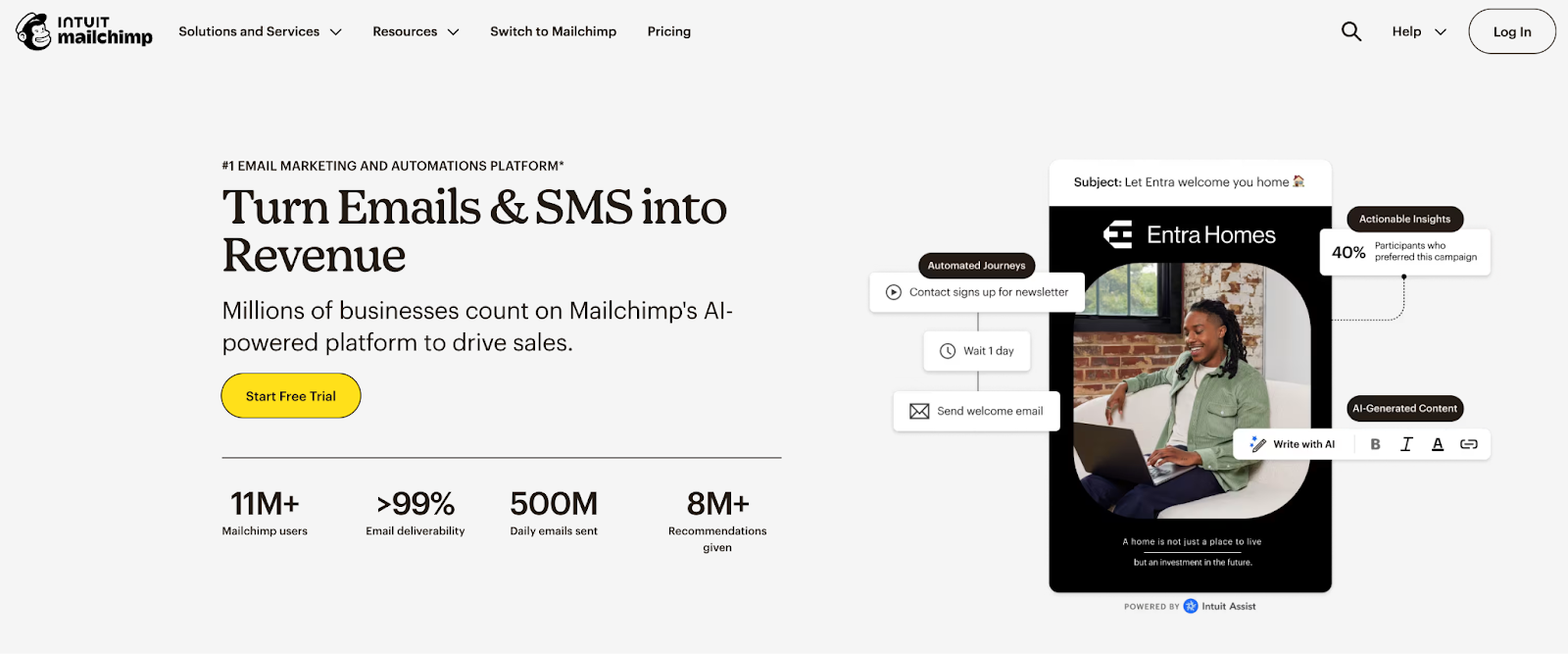
Mailchimp is popular for its email marketing automation features, but it can extend to social media and ad campaigns as well. It’s particularly useful for automating customer outreach, like sending welcome emails, abandoned cart notifications, or personalized product recommendations. With deep integrations across many ecommerce platforms, it enables data-driven campaigns tailored to customer behavior.
Best for: Businesses looking to automate email marketing campaigns and nurture customer relationships.
Key features:
- Pre-built email automation workflows.
- Integration with ecommerce platforms like Shopify and WooCommerce.
- Advanced segmentation and personalization options.
3. Omnisend

Omnisend is an omnichannel marketing platform that combines email, SMS, push notifications, and more into a single platform to deliver unified customer communication. Its omnichannel features help ecommerce businesses automate their marketing efforts with pre-built workflows, enabling timely customer interactions across multiple touchpoints.
Best for: Businesses seeking omnichannel marketing automation across email, SMS, and push notifications.
Key features:
- Seamless integration with ecommerce platforms.
- Automation templates for cart abandonment, order confirmation, and welcome emails.
- Detailed customer segmentation and reporting tools.
4. HubSpot
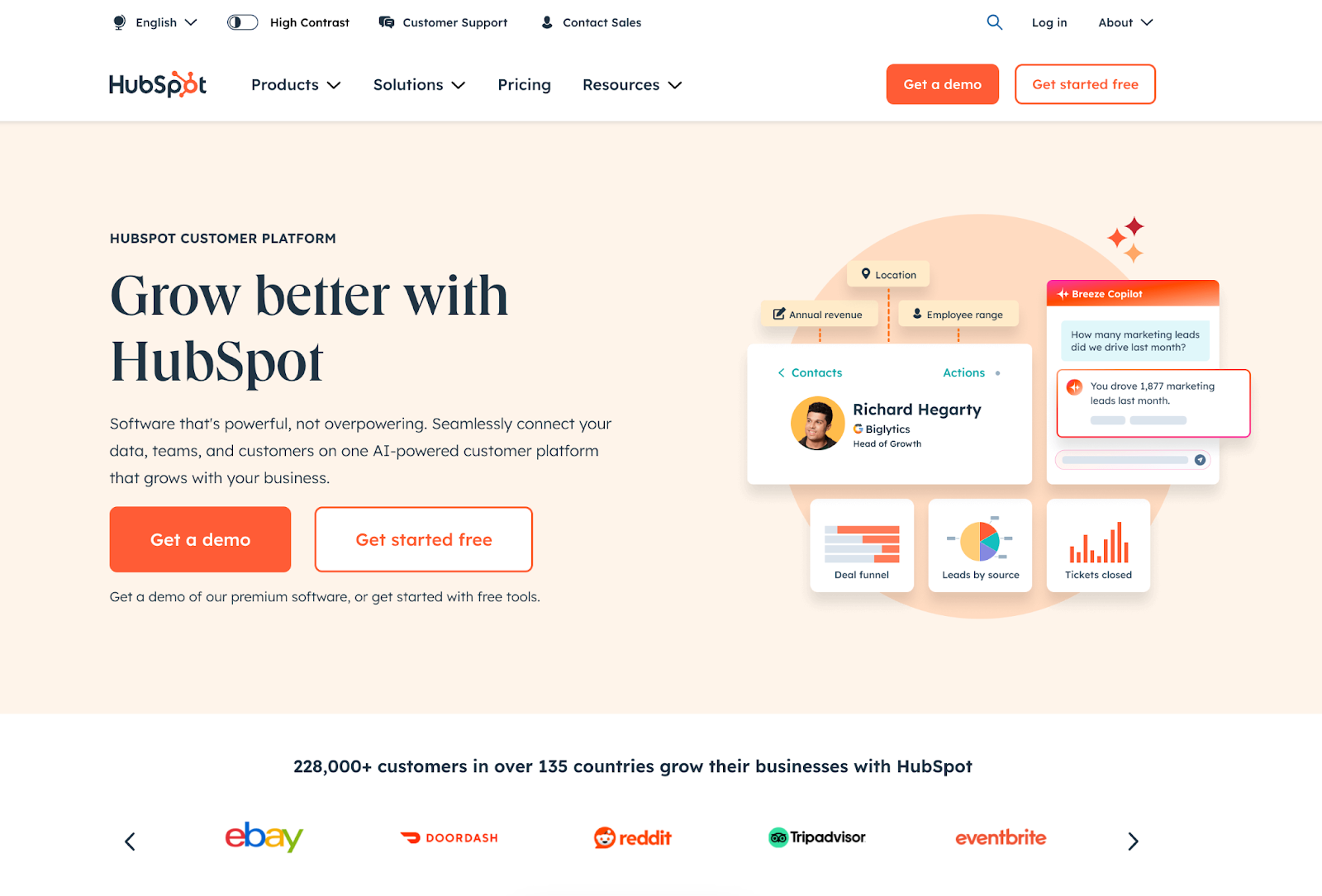
HubSpot is a well-known customer relationship management (CRM) platform that combines marketing, sales, and customer service automation. For ecommerce businesses, it’s an ideal tool to nurture leads, engage customers, and manage sales processes (especially if you’re working within B2B relationships). The platform also includes a powerful marketing automation engine that can help create personalized workflows based on customer data.
Best for: Businesses looking for an all-in-one CRM with marketing and sales automation.
Key features:
- Marketing automation for email campaigns, social media, and lead nurturing.
- Advanced CRM features for sales tracking and customer management.
- Integration with popular ecommerce platforms for seamless customer data syncing.
5. Klaviyo

Built specifically for ecommerce businesses, Klaviyo is a data-driven email and SMS marketing platform that helps online stores create personalized marketing campaigns based on customer behavior like browsing history or purchase patterns. Klaviyo’s automation features enable businesses to send targeted messages at the right time, increasing conversions and customer loyalty.
Best for: Companies wanting to create personalized email and SMS campaigns for ecommerce.
Key features:
- Advanced segmentation and automation based on customer behavior.
- Pre-built email flows for abandoned carts, win-back campaigns, and product recommendations.
- Deep integration with ecommerce platforms for customer data insights.
6. ActiveCampaign
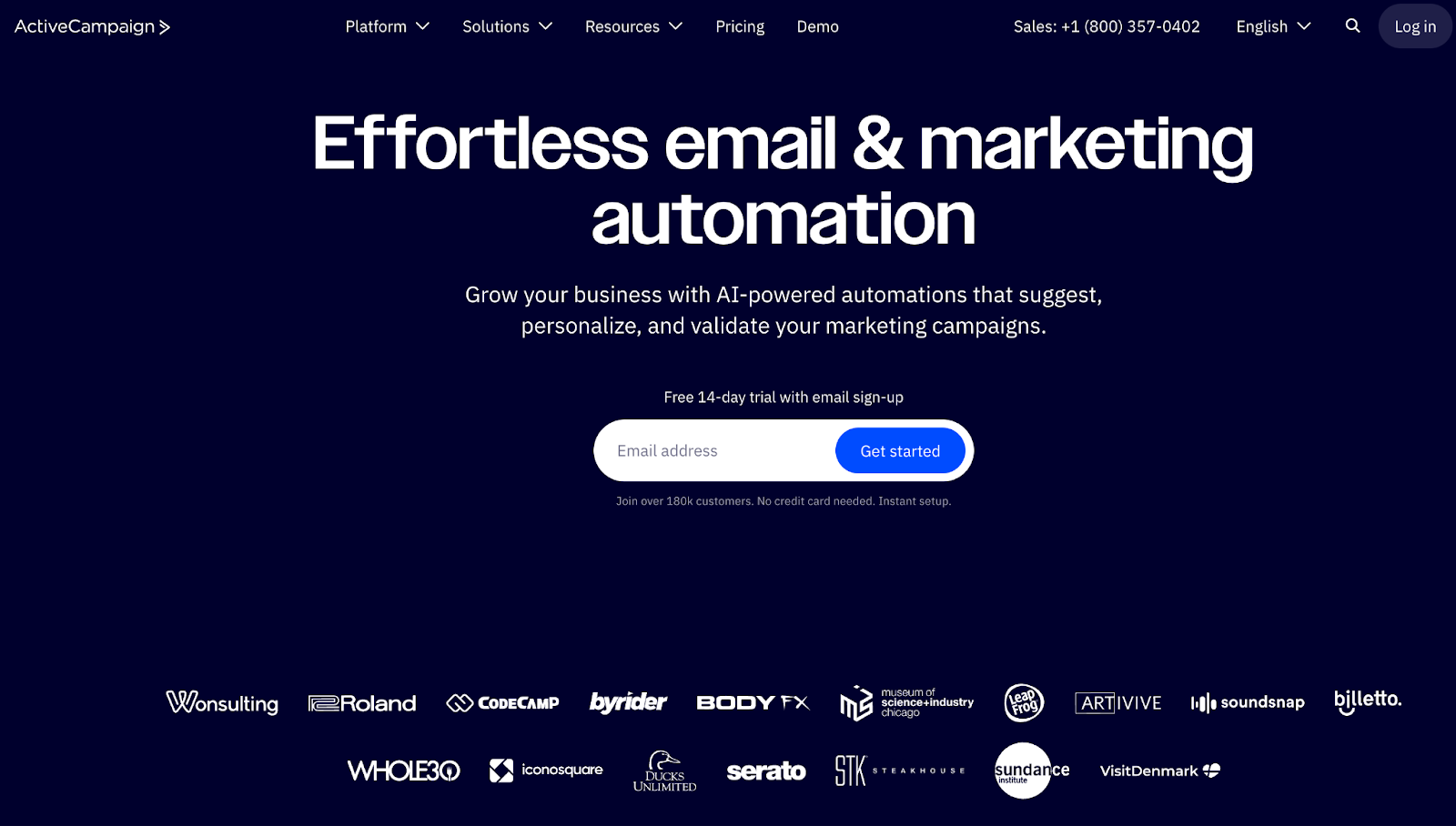
ActiveCampaign combines email marketing, CRM, and sales automation into a single platform. It’s a valuable tool for ecommerce businesses of any type, from online stores to businesses focusing on selling online courses, because it can be used on marketing campaigns and to nurture customer relationships through targeted email campaigns, personalized messages, and automated sales workflows.
ActiveCampaign also offers robust customer journey mapping and advanced email performance reports, helping businesses stay engaged with customers throughout their lifecycle.
Best for: Businesses looking for advanced email marketing and CRM integration.
Key features:
- Automation workflows for email campaigns, sales follow-ups, and customer retention.
- Advanced segmentation and behavior tracking.
- CRM features for managing customer relationships and sales pipelines.
7. Cin7 (formerly known as Orderhive)
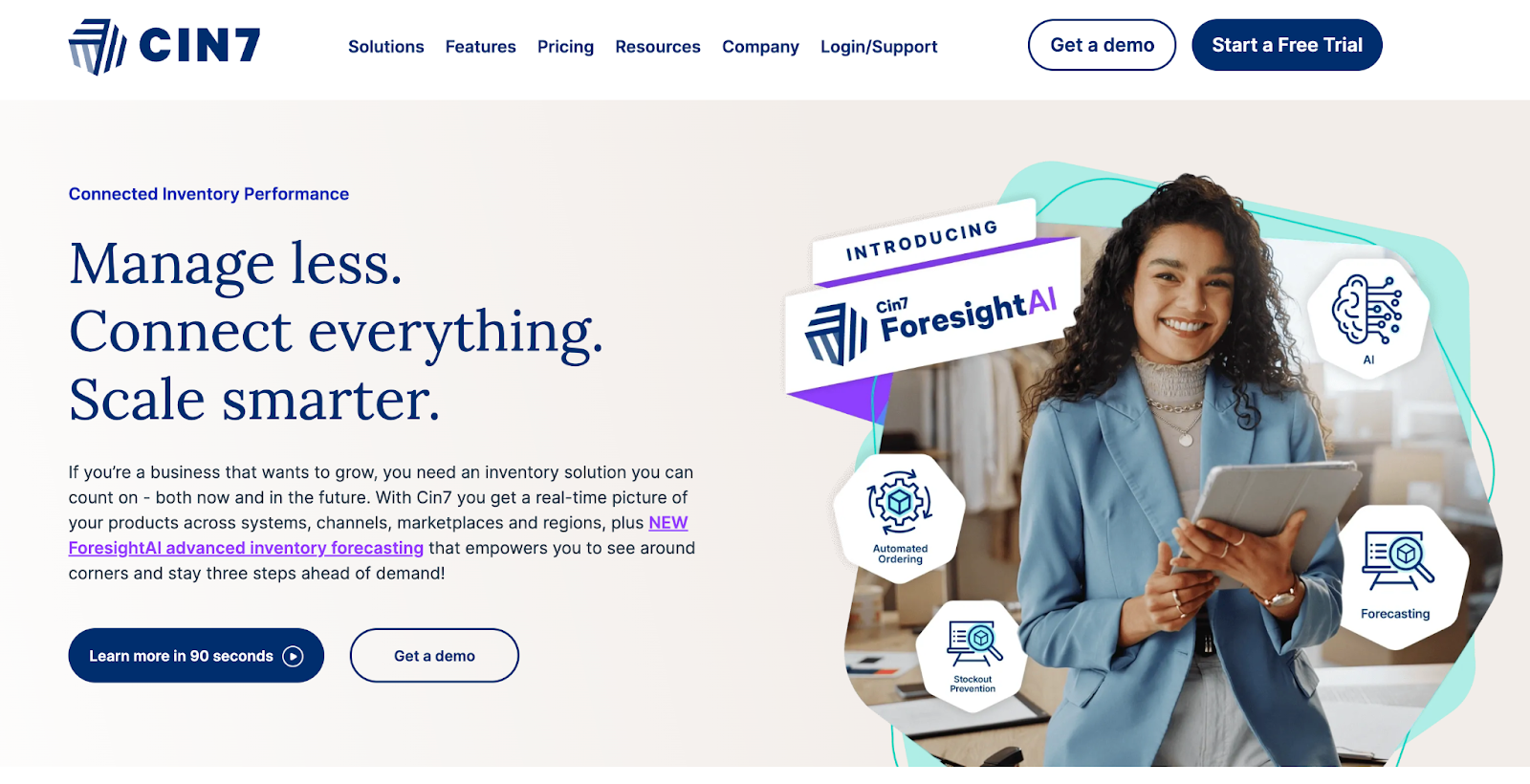
This is an ecommerce automation tool designed to simplify inventory and order management for brands operating across multiple sales channels. It offers real-time inventory tracking, automated order fulfillment, and shipping integration, helping businesses manage their supply chain more efficiently. Cin7’s automation rules help companies streamline complex operations like inventory restocking and multi-channel order fulfillment.
Best for: Managing inventory, orders, and shipping across multiple platforms.
Key features:
- Multi-channel inventory management with real-time updates.
- Automation rules for stock replenishment and order routing.
- Integration with shipping carriers for automated label printing.
8. ReCharge

ReCharge is a subscription management platform that automates recurring billing and customer management for brands offering subscription-based products. By integrating with ecommerce platforms such as Shopify and WooCommerce, ReCharge simplifies the process of managing subscriptions, handling everything from billing to customer retention.
Best for: Businesses that sell subscription boxes, membership services, or recurring deliveries.
Key features:
- Seamless integration with Shopify and WooCommerce.
- Automated recurring billing and customer retention workflows.
- Analytics tools for tracking subscription performance.
9. Linnworks
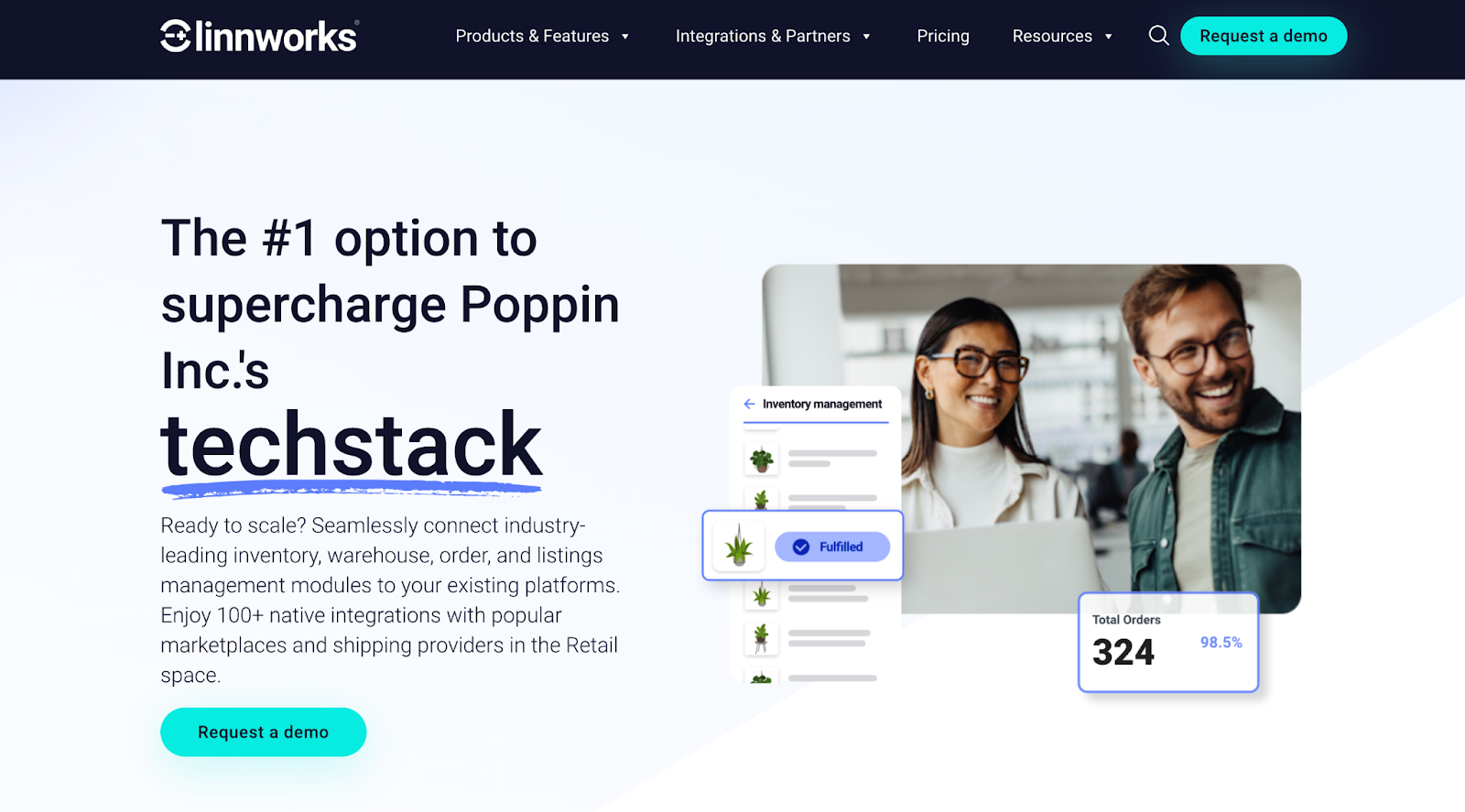
Linnworks is an automation tool that can be integrated with major marketplaces and carriers, automating key tasks such as stock updates, order processing, and shipping. It helps brands manage orders, inventory, and fulfillment across multiple sales channels, with reporting features that optimize their operations and reduce manual work.
Best for: Automating multi-channel orders and inventory management.
Key features:
- Integration with Amazon, eBay, Shopify, and other platforms.
- Automated order processing and shipping-label generation.
- Inventory synchronization across sales channels in real time.
10. Drip
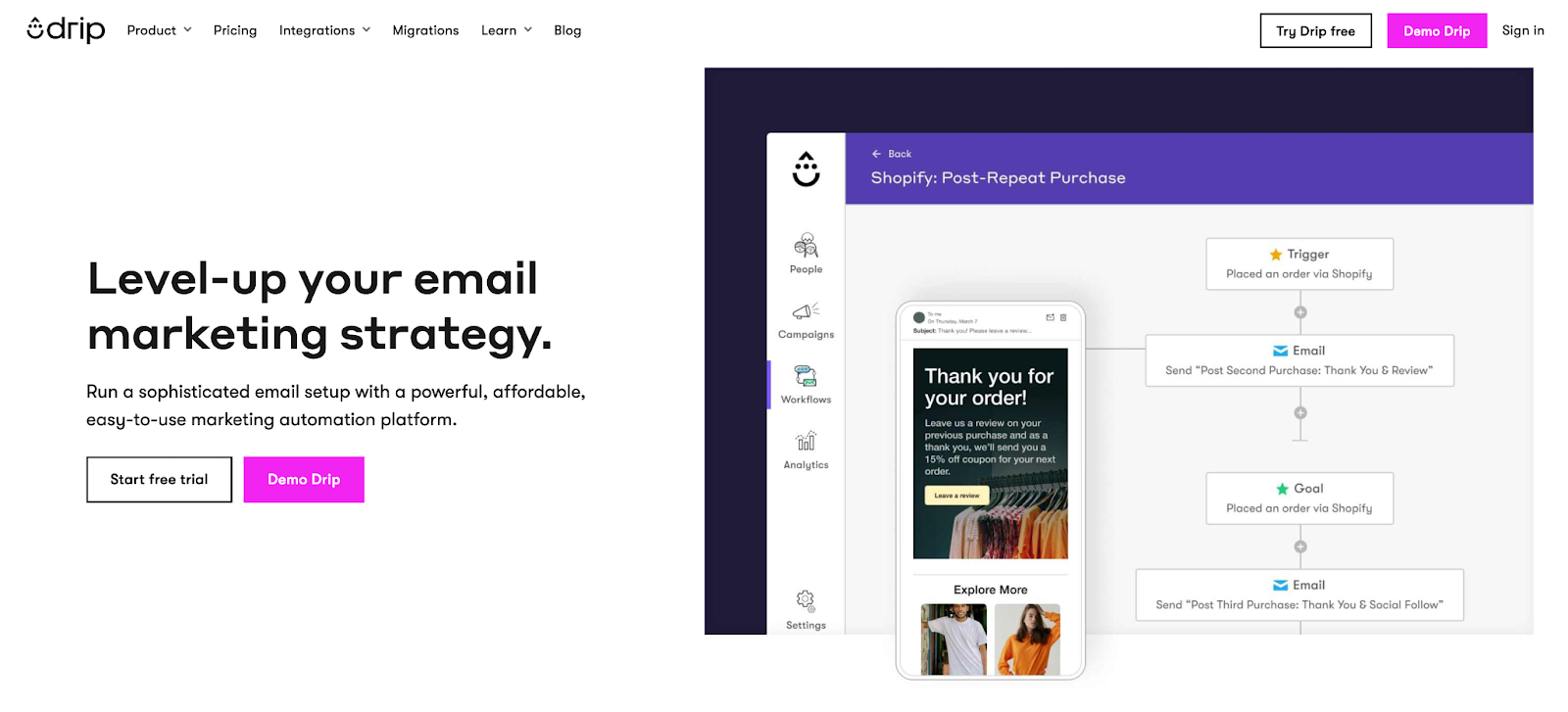
Drip is a powerful email marketing tool focused on helping brands engage customers through personalized, data-driven campaigns. It enables the creation of workflows that send automated emails based on customer interactions, like product page visits or abandoned carts.
Best for: Businesses looking to build long-term customer relationships with targeted email marketing campaigns.
Key features:
- Advanced personalized email workflows.
- Detailed reports of customer segmentation and tracking.
- Integration with ecommerce platforms like Shopify and WooCommerce.
11. Zendesk
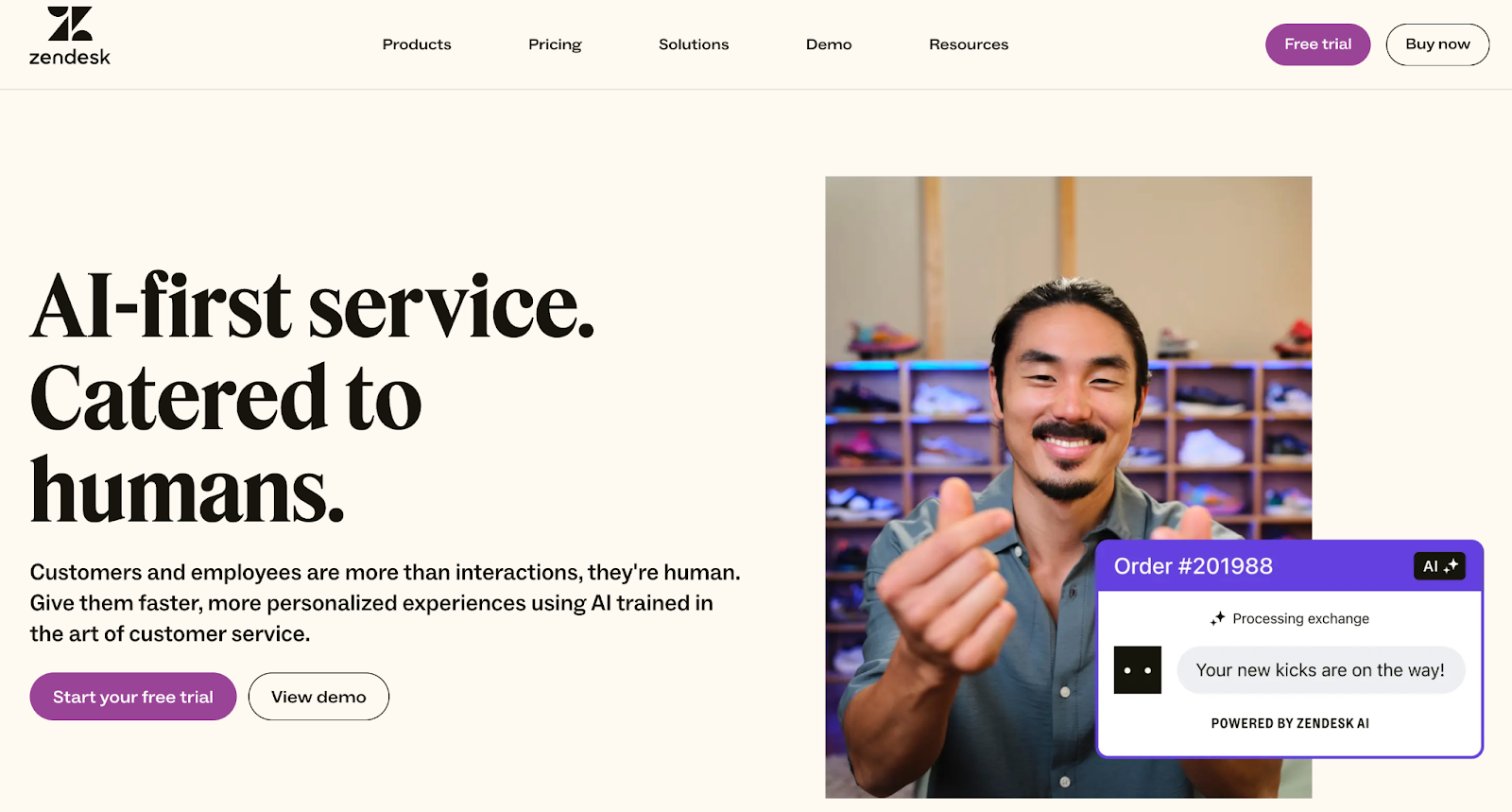
Mostly known for its AI-based customer service features that help streamline support operations, Zendesk is a tool that enhances the customer support experience, with ticket routing, AI-powered chatbots, and multi-channel integration.
With Zendesk, brands can also create self-service portals for customers to resolve common issues on their own, reducing support team workloads.
Best for: Businesses looking to automate customer service and response enhancements.
Key features:
- AI-powered chatbots for 24/7 support.
- Omnichannel support, including email, chat, and social media.
- Automated ticket routing and customer service workflows.
12. ShipStation
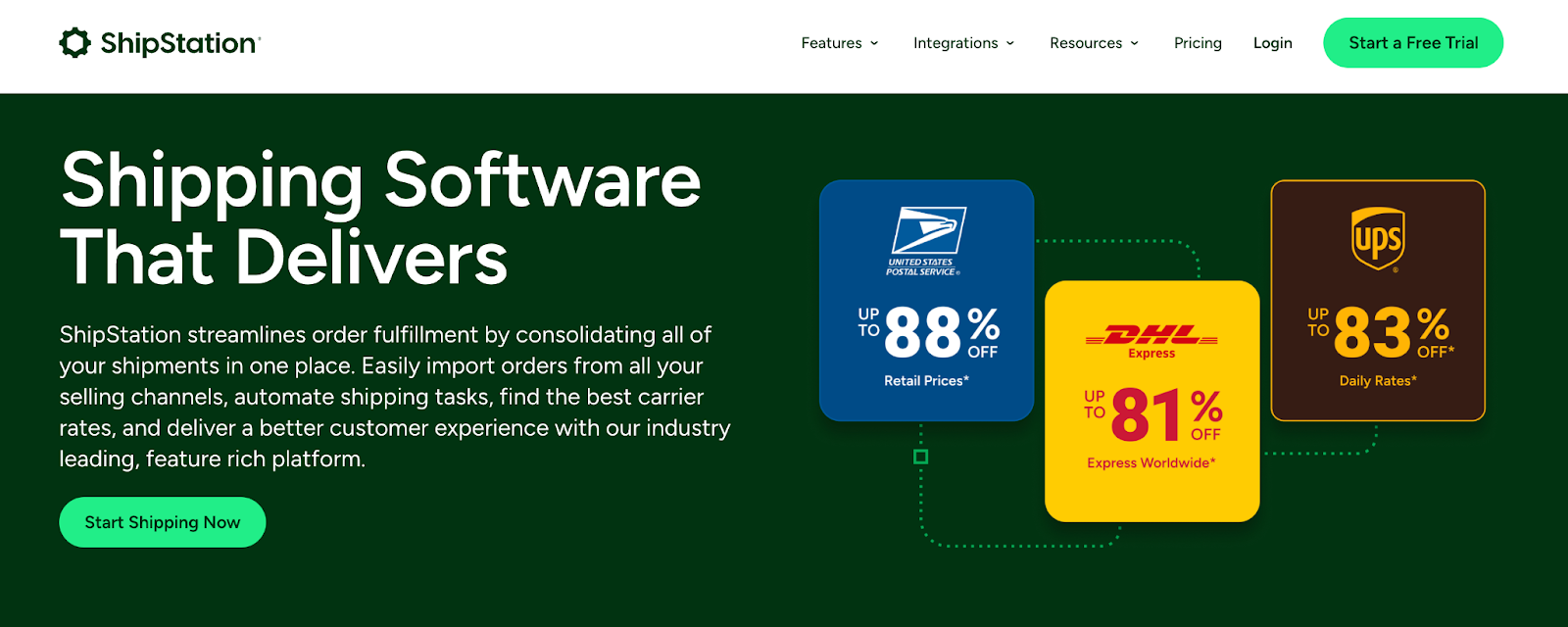
ShipStation is a shipping software designed to streamline order fulfillment, providing you complete control over shipping operations in one platform. It simplifies the shipping process by automatically generating shipping labels, tracking orders, and sending customers notifications.
Best for: Businesses looking to automate their shipping process, from label creation to order tracking.
Key features:
- Integration with major marketplaces and carriers like Etsy, eBay, UPS, FedEx, and USPS, among others.
- Real-time shipping rate comparison, ensuring complete efficiency for costs.
- Automated label printing and shipping notifications.
13. Brightpearl
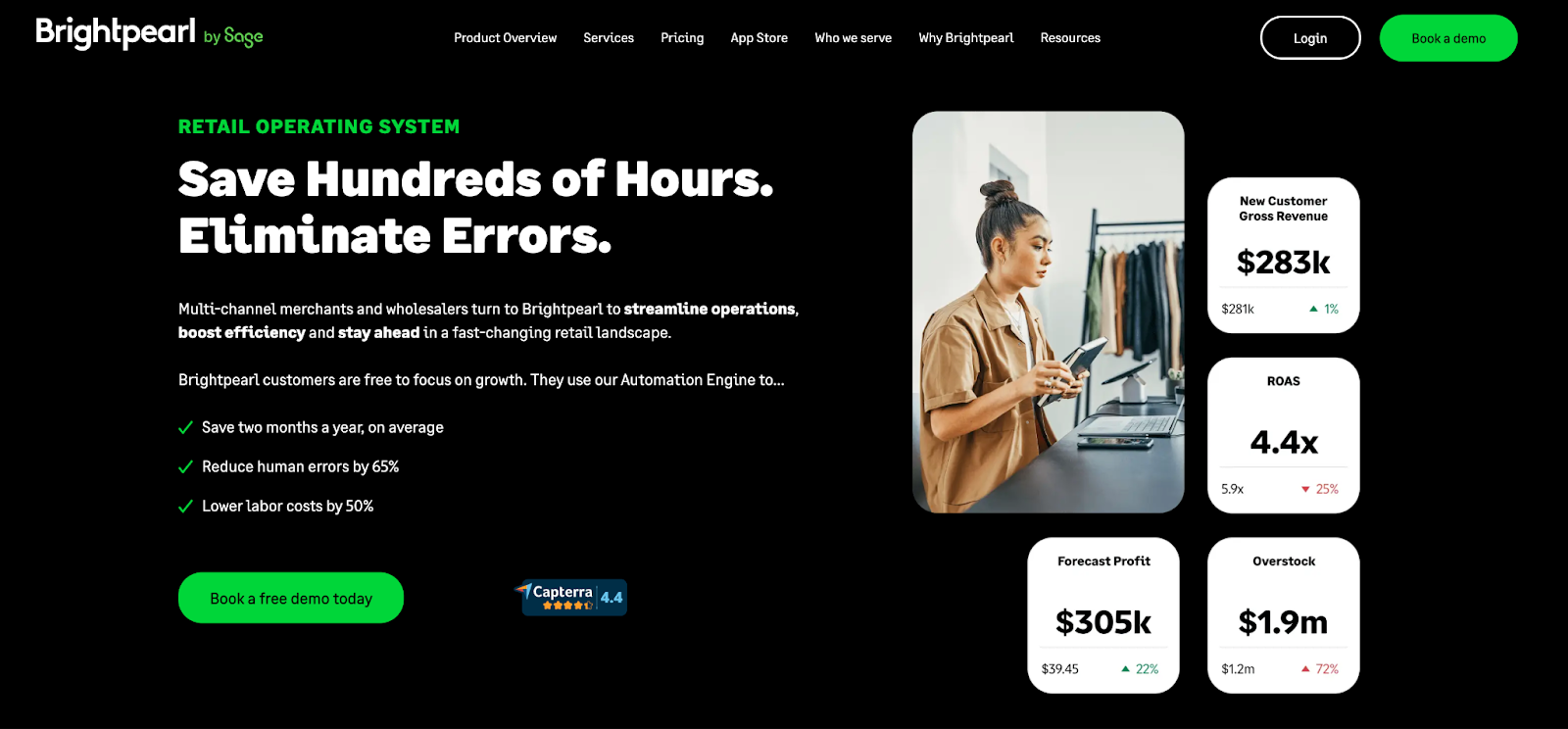
A retail operating system with more than 5,000 brands in its portfolio, Brightpearl is designed to automate retail processes such as inventory management, order processing, and accounting. It helps ecommerce and retail businesses manage their backend operations efficiently while integrating with multiple sales channels.
Best for: Businesses looking for an automated engine with data-driven insights to reduce time and labor costs.
Key features:
- Automation for orders, inventory, and financials.
- Real-time reporting and analytics tools.
- Integration with ecommerce platforms.
How to choose the right ecommerce automation tool for your business
Here’s what you need to consider when choosing the right automation tool for your business:
Evaluate your business needs
Identify the areas where your business could benefit most from automation—this could be marketing, customer service, or order fulfillment, for example. By identifying every possible friction point in your business’s operations, you can choose specific tools to solve those particular challenges.
Think about your business size and growth stage
Smaller businesses may need only basic automation tools to start with, while larger enterprises (with higher order volumes or complex supply chains) may require more advanced software. Choose a tool that scales with your growth to avoid investing in something you don’t particularly need right now.
Focus on usability and customization
While some tools offer advanced features, they may require technical expertise or development resources that you don't have (or shouldn't need to use) at the moment. So make sure the ecommerce automation tool you select aligns with your business's needs and/or your team's skill set.
The best ecommerce automation tools allow customization, enabling you to create workflows that match your business's unique processes. A tool like HubSpot, for example, provides significant flexibility in creating workflows and is fairly simple to use.
Check for scalability and omnichannel support
The automation you choose needs to handle increasing workloads as your business grows. If your order volume, customer base, or product catalog expands, make sure the software you're choosing can scale without losing performance or requiring costly upgrades.
Also, if you sell across multiple platforms (e.g., online store, marketplaces, social media), it's wise to choose an automation tool that can be integrated and managed across these channels efficiently—omnichannel support. This ensures you offer a consistent experience for your customers, regardless of how (and where) they approach your brand.
Scale your ecommerce business with Whop
If you’re building an ecommerce business, Whop is the platform that provides insider information and support at every stage of your ecommerce journey. You can easily find communities, courses, and other resources to help you along your way. Whether you're just starting out or are looking to grow your existing business, you'll find advice, education, and ecommerce tools on Whop.
Once you’ve learned how to create your road map to success and you’re ready to launch, join the next generation of internet entrepreneurs building their businesses on Whop's all-in-one platform. You can leverage features like:
- Integrated email marketing
- Easy-to-understand dashboards
- Automated fulfillment
- Subscription management through memberships
- 24/7 support
- And many more.
You can easily create a whop, market your products, and sell to people looking for exactly what you're offering, all in one place and for a transaction fee as low as 2.7% + $0.30.
Start your ecommerce journey today, join Whop.
Best ecommerce automation tools for 2024 FAQs
The most frequently asked questions about the best ecommerce automation tools.
What is an ecommerce automation tool?
An ecommerce automation tool is software that helps streamline repetitive tasks in your online business, such as managing orders, inventory, marketing campaigns, or customer service, without requiring manual input.
Why should my business use an ecommerce automation tool?
Ecommerce automation tools reduce manual effort, minimize errors, and allow you to focus on higher-level business activities. They can also improve customer experience by ensuring faster order processing, personalized marketing, and consistent communication.
How much do ecommerce automation tools cost?
Prices vary depending on the tool and the features it offers. Some tools have free or low-cost plans for small businesses, while more advanced platforms may charge higher fees based on your business’s size and needs.


